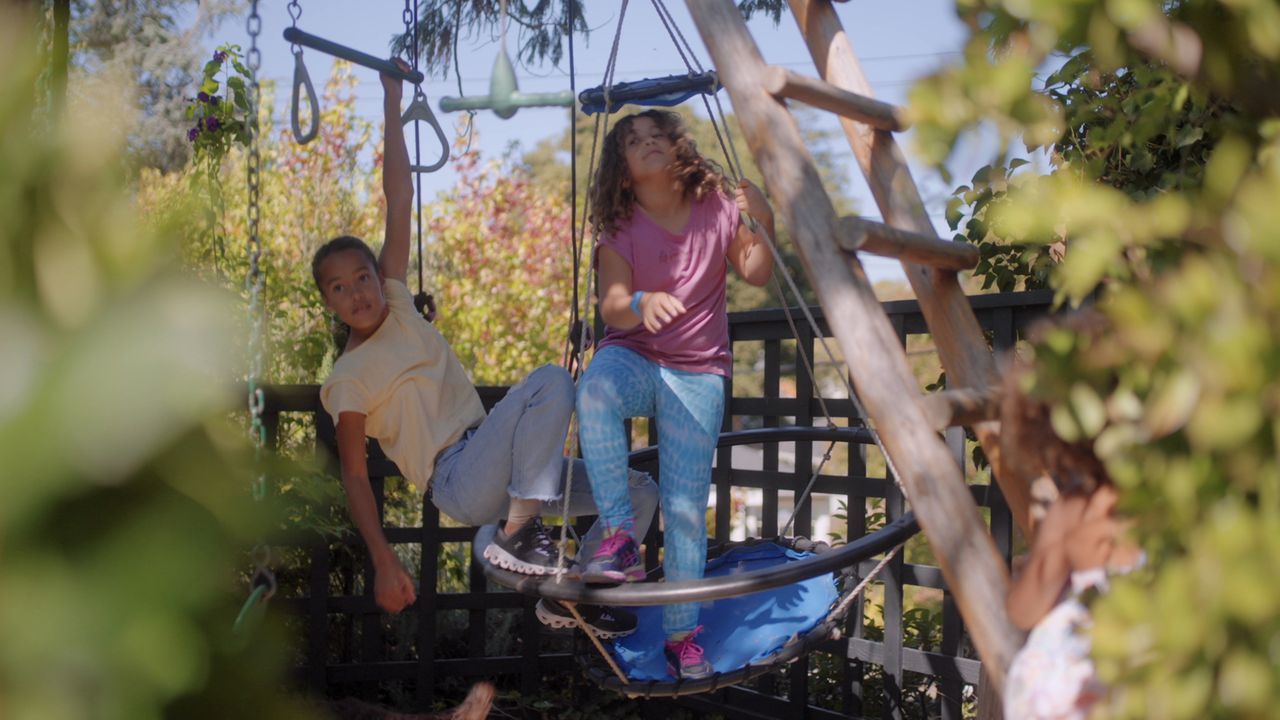‘1000% Me:’ W. Kamau Bell listens to mixed-race youth in new HBO film
W. Kamau Bell – a kid who went from spending summers with his dad in Mobile to achieving national recognition as a comedian, author, television host and professional asker of awkward questions – returns to the nation’s screens Tuesday with a new special on the lives of mixed-race children.
Titled “1000% Me: Growing Up Mixed,” Bell’s new documentary is a fascinating, thought-provoking hour that premieres Tuesday, May 2, on HBO Max. Bell himself stays mostly off-camera, letting the focus rest on the program’s real stars: children who, despite their youth and often dazzling cuteness, have sophisticated and sometimes profound things to say about race and identity. Time and time again they say: Being of mixed parentage doesn’t mean you’re half-this and half-that. To them, it means being all this and all that. Mainly, as the title indicates, it means being themselves.
Bell is not himself of mixed race. But his three children with wife Melissa are, and it’s partly for them that he pursued this project. The first child we see on screen is his oldest daughter, Sami. Bell describes her as an “incredible, bouncing, buoyant piano-playing kid. Half Black, half white. I brought the Black part, my wife Melissa brought the white part.”
W. Kamau Bell’s oldest daughter Sami, left, and middle child Juno, right, are featured in his new project “1000% Me.”HBO
“What song does your dad sometimes wake you up with, you and your sister, up with in the morning?” Bell asks.
“The song that you sometimes wake us up with is ‘To Be Young Gifted and Black’ by Nina Simone,” says Sami, casually but deliberately rejecting her father’s use of the impersonal third person.
“Why do you think I play it for you in the mornings?” he asks her younger sister Juno.
“Because me, Sami and Asha are all young, gifted, and black,” says the 7-year-old. “Well, not completely Black, but.”
Bell doesn’t hog the camera. In fact, you only get a glimpse or two of him.
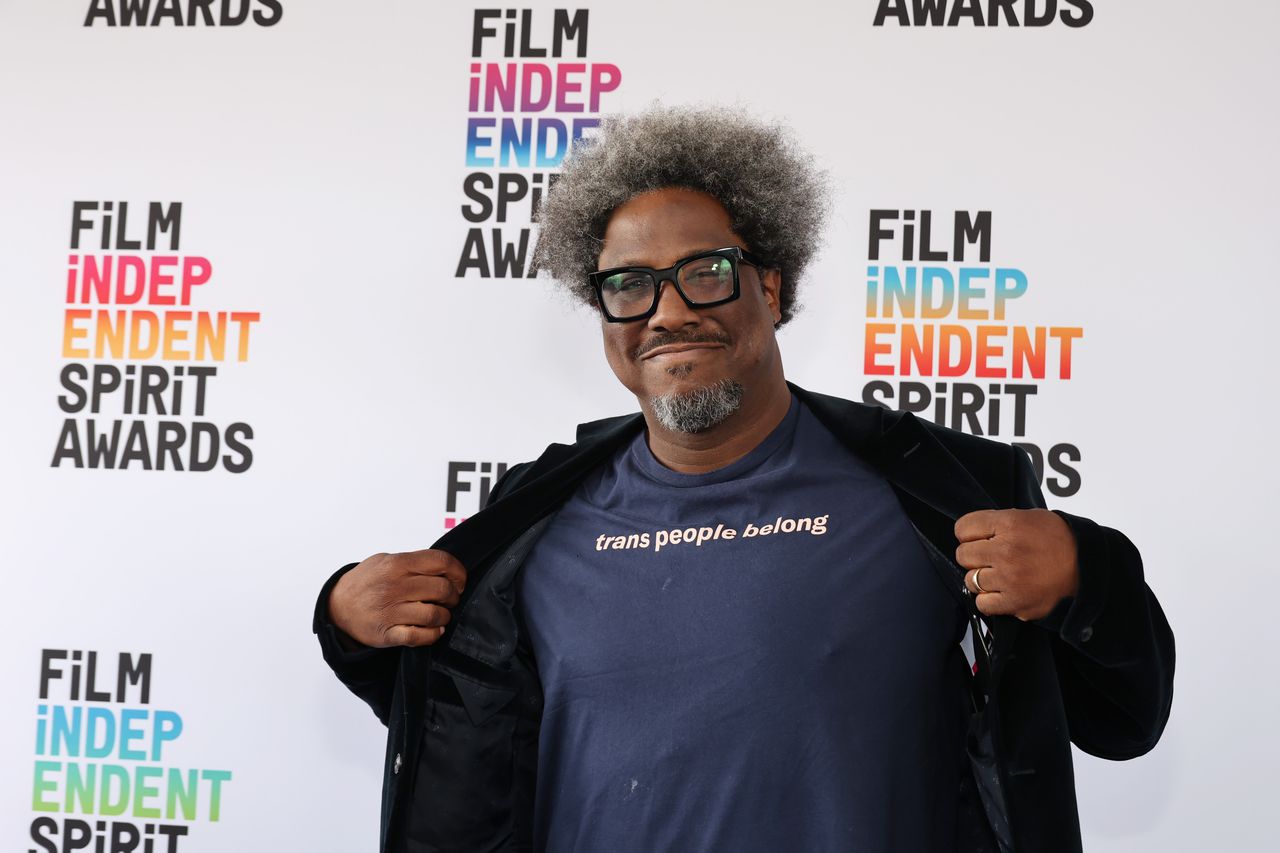
W. Kamau Bell is shown at the 2023 Film Independent Spirit Awards on March 04, 2023 in Santa Monica, Calif. His new HBO Max special, “1000% Me: Growing Up Mixed,” premieres May 2. (Photo by Amy Sussman/GA/The Hollywood Reporter via Getty Images)The Hollywood Reporter via Getty
“I’m not a mixed person so I really try to be careful about, when you hear my voice, it is either to impart information or to sort of explain where we’re headed next,” he said. “But not to be like the voice of authority, because it’s not my place to be an authority on this.”
The authorities include the impossibly cute Myles, in touch with his Filipino and Black roots. There’s Kanani, whose heritage is Latina, white and indigenous. There’s Anisa, for whom being Muslim signifies just as much as being Pakistani and African American. There’s Kaylin, who’s half-Black, not because one of her parents is Black but because each is half-Black, and one is half-Korean. There are kids of same-sex parents, born with the help of a sperm donor or brought into the family via adoption.
Ahead of its release, Bell took some time to talk about the project and its young stars.
(The following Q&A is lightly edited for clarity.)
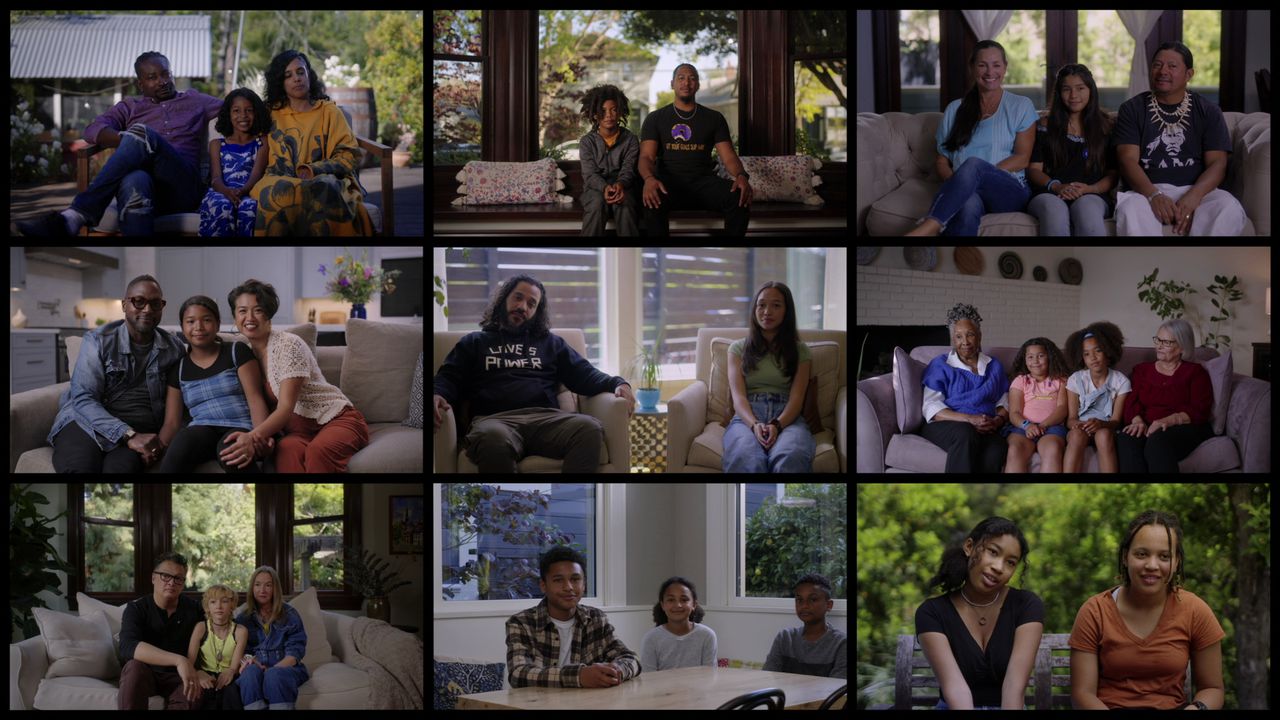
The families featured in “1000% Me” are a diverse bunch, even more so than the subject matter might lead one to expect.HBO
The kids featured in “1000% Me” are impressive and that starts right up front with your oldest daughter, Sami, who is 10 but speaks with incredible composure. Where does that come from?
W. Kamau Bell: Parents want to always take responsibility for that but I really do believe that it’s 50% nature and 50% nurture. There are ways in which kids show up … From the first day Sami showed up her head was on a swivel, she was looking at everything, she was taking in the world. Whereas our middle kid, Juno, showed up and, I always say, I don’t think she opened her eyes for a month. I think she was just like, ‘I’m not ready yet.’ And then our third kid Asha is sort of this feral kid who’s like a wild child. A lot of it is just who they are when they show up and then you sort of try to like, as I say in the end, set ‘em up and not get in the way.
I think with Sami, a lot of her perspective comes from, when she was born my career started to take off and she was traveling a lot. She had a passport when she was six weeks old. She as in Scotland at six weeks because I was doing a festival over there, a comedy festival. She was born in San Francisco, then we quickly moved to New York because I got a TV show. Then she’s in New York and it’s suddenly like, whoa! But then we’re traveling back to California every holiday … From a very early age Sami traveled a lot and she just learned that the world was bigger than her. I think a lot of times kids, understandably, don’t travel a lot as little kids and they start to think that the world is all about them, and you see those kids at the playground sometimes, having a tantrum over a cookie. Whereas I think Sami understood that, like, “There’s a lot of world out here and I’m excited that I can take it all in.” So I think that’s where a lot of her perspective comes from, is that she’s always aware that there’s a lot more out there than she understands.
You see that with some of the other children, who are used to visiting family in other countries and being immersed in those cultures. How did you assemble this group?
About half of them are kids that are friends of Sami and some of them I’ve known since they were in kindergarten. Kanani and Mila, I was like, these kids are ringers. I knew these kids were going to show up and do this … it’s like showing up at the basketball court at the Y and being like, “I have my friend Steph Curry here, he’s going to get a game.” So Mila and Kanani I’ve known since they were in kindergarten. Anisa Is a newer friend for Sami, she moved to the school but I’ve been around her enough to know that her experience is broad and she’s got a lot to say. And also she’s funny. It’s also about personality.
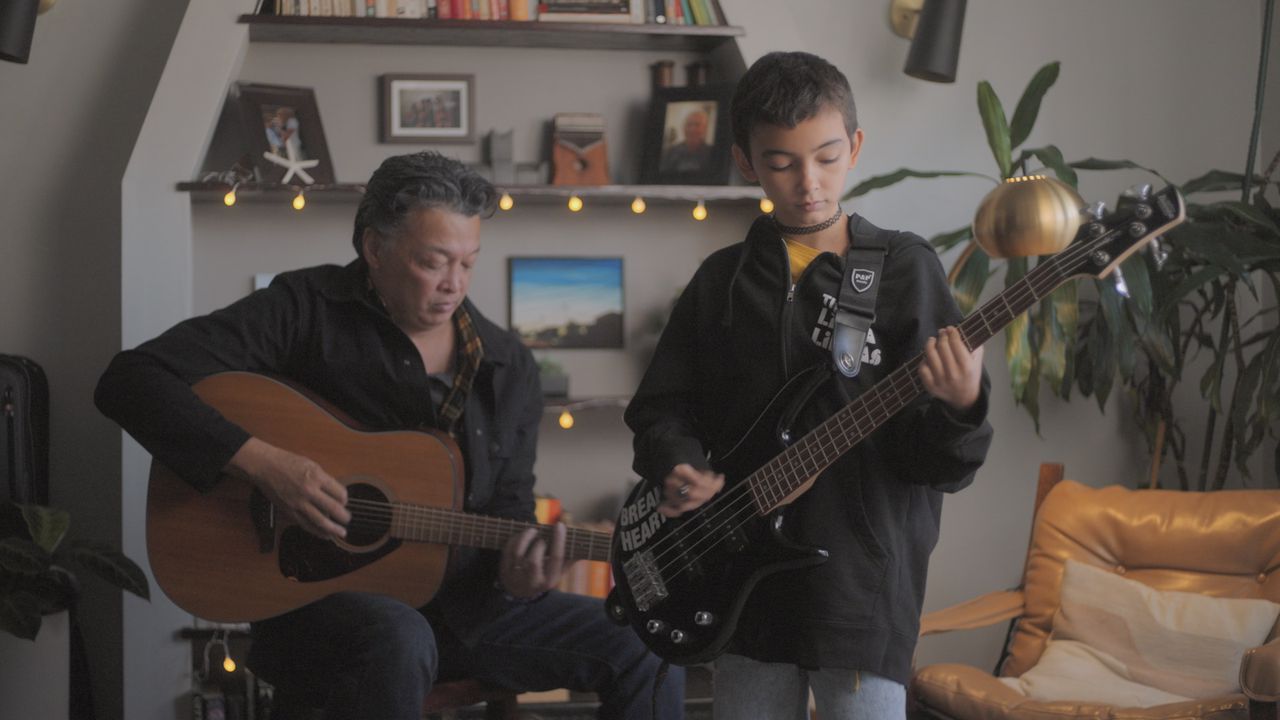
Presley, right, shown with father Paolo, is one of the young subjects of “1000% Me.”HBO
And then the other half, of these kids, I had a producer who just went out to find mixed-race kids. There’s not like really a mixed-race kid hub anywhere so she had to, like, call cultural organizations, like SOMA Pilipinas that we talk about in there. She called a Filipino-American organization … and that’s how we ended up with Presley. And a lot this was, the parents heard about it and they were like, ‘I’m curious what my mixed-race kid would say about their experience,’ so they would sign their kid up for it.
There’s kind of an internal discussion, where you’ll see the kid say something and then you’ll see the parent watching it for the first time on a tablet and reacting.
At first we thought it was just going to be children, exclusively. The more we developed it, the more it was like, we’d like to hear from other people in their lives about them or about their experiences. And it became really cool because when we met Myles — Myles is the kid with the awesome hair who says his dad looks like Denzel Washington – we didn’t know he had an older brother, half-brother, who was 20 years older than him, who was also mixed Black and Filipino. It was like oh, that’s amazing. Because then we get a generational difference. Like, these two are brothers but it’s two completely different generations. And as you see, he’s like, ‘I’m happy Myles is having these experiences because it was not that way for me.’
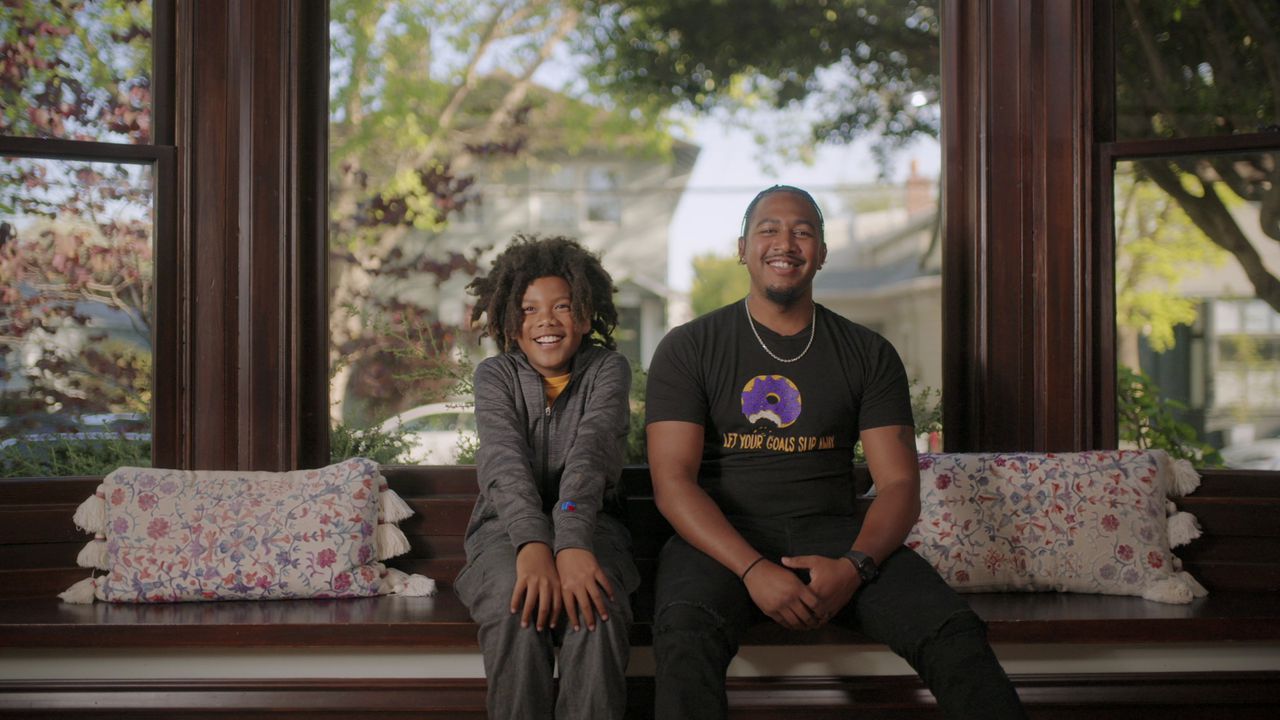
Myles, left, and his much older brother Georgio are one of the interesting pairings in “1000% Me.”HBO
We hired Greg as a consultant because he’s mixed-race and he’s an expert in this field. And then we were like, “We’re looking for teenagers.’ He’s like, “Well, I have a niece who has a dad who’s half Black and half white, and a mom who’s half-Korean and half-Black.” We’re like, “What?” It also was important to bring as many different types of mixed folks in, and when we brought in their family, to not always bring the parents in. So we could see lots of different perspectives on these issues. So with my kids instead of me and my wife sitting down for an interview, I was like, “I’d really like to hear my mom and your mom have a conversation about this stuff.” I still can’t believe my mother-in-law did it.
One thing that stands out is that you don’t push conclusions on the discussion.
It really was like, let the kids lead the way. We could have edited this differently where we started out with the adults and ended on the kids. But it was really like, start with the kids then bring in their next generation of people. And then end with the kids. It was really about letting the kids lead the conversation. From the moment I started working on this, because of my relationship with my kids, me and my wife, I was like, I want it to be something they would watch. Sometimes people will interview kids and then they will cut it up such a way that the kids don’t seem like they have personalities. And so for me it was letting the kids’ personality shine through, letting them be their own experts, letting them be funny, letting them get things wrong sometimes, because that’s what kids are going to do. “Lyrical” is the word I kept thinking about when we made it, I wanted it to feel lyrical. Some of that’s the music choices we made with Marcus Shelby, who’s a great Bay Area jazz bass player who did all the music. Sometimes it’s about letting a little girl, Sumaya … she’s just full with energy, she’s like, “Right now my brain is doing the running man and having a party.” Well, we could have cut that out. At one point someone was like, “We could cut that out, we don’t need that.” And I’m like, “We 1000% need it because that shows that this is an actual kid, we didn’t go hire a little person to pretend to be a kid, this is an actual child.”
The film is on the whole very upbeat, positive, affirming. There’s a sense things have gotten better. There’s even a point where a 15-year-old says his 10-year-old sister has it better than he did. There’s a lot of hope in that, but also a danger of thinking American society has passed a tipping point and the rest is easy. But again, you don’t force a conclusion that things are good or things are bad.
No. Things are things. I think the film sort of shows, the younger kids are filled with more hope and joy, but then you see some of the older kids come in and once you hit those preteen, teenage years, you start to see the outside. You start to feel the outside world demanding you pick a side. So you can feel that it gets heavier. But it seems like every generation is doing a better job handling mixed-race kids. So by the nature of the film, you feel like, hopefully this generation will advance the ball in ways that the last generation was not able to. There’s this really important part of the film where Erica, who’s half-Japanese half-Black, she’s one of the adults, she says there’s this idea that mixed-race kids, by the nature of their existence, are going to save the world. We sort of imagine, “One day we’ll all be mixed” [and acceptance will no longer be an issue]. It’s just not true. The existence of mixed-race kids, and you can hear them talk about their own problems and issues, does not mean that they’re going to save the world. But it doesn’t mean that that they don’t have knowledge that the rest of us don’t have.
Pretty early on it’s clear this isn’t going to be just about Black and white. There are people of Latino, Asian, indigenous descent. Religion can be as powerful a lens as race. Particularly for same-sex couples, adoption or use of a sperm donor may complicate the question of parentage.
Welcome to the Bay Area.
But, again, you let it flow. There’s not a moment where you say “identity” means this but not that.
Early on when I asked Anisa about how you define your mix, she’s like, “I’m Black, I’m Pakistani, and also Muslim.” And I’m like, “If that’s how she defines it, that’s how she defines it.” We could have cut that out and gone like, ‘Anisa could you say that line again but don’t say Muslim? You know what I mean?’ [He laughs to show he finds the idea absurd.] But she defines part of her mix being her religion. This whole film is saying, let these kids, these people, define themselves. A lot of times, you hear from other people, that as they get older they have to pick a side or reject a side. One of the recurring themes is you hear kids and mixed-race adults say, or even the parents say, it’s not about fractions, it’s not about I’m half this and half that. It’s like, I’m both of these things, I’m all of these things.
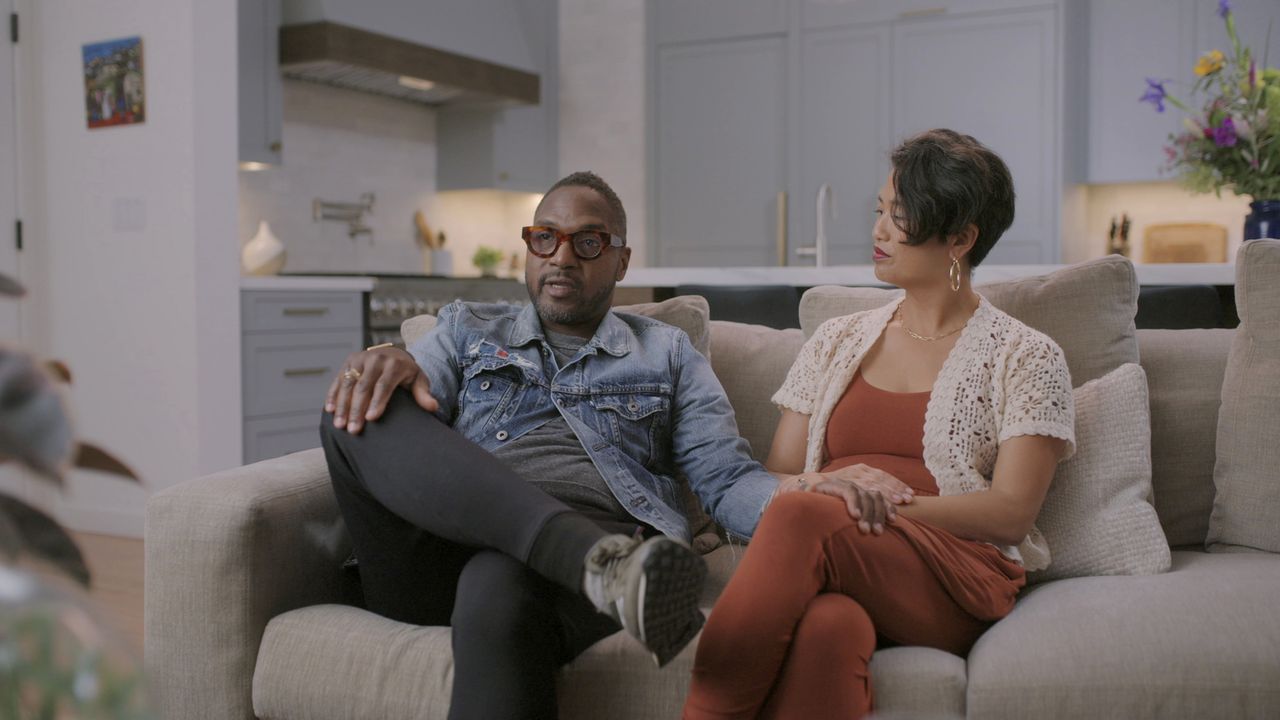
In “1000% Me,” parents Bryant and Jidan talk about the challenges that their different racial backgrounds brought to parenting.HBO
I think if you talked to kids in the South about being mixed, if you talked to kids in Appalachia about being mixed, if you talked to kids in Minnesota about being mixed, you’re going to hear different stories, and different versions of what it means there, and different mixes of people. I think this is very much steeped in kids from the Bay Area, but I think it would be great to make more of these films in different parts of this country. You would hear differences, you would hear environment and how what you’re being taught in school affects how you see yourself. But I think letting the kids be their own experts is really important. And show that even though it’s better than it was, that still doesn’t mean it’s perfect, and these kids are going to have to grow up and still advance the ball.
We have all these little cultural battles about adding new options to a demographic checklist, for example, or what it means to “identify as” something. It’s easy to write it all off as a series of daily brush fires, but you seem to hear these kids saying it’s good to have the options and the terminology.
There’s a great conversation where the two brothers and the sister, Anisa and Khalil and Ibrahim, talk about how they identify. It’s like, “I like to say mixed because when you say multi-racial people start asking.” … They’re very aware of how their identity is perceived in the world and they don’t always want to talk about it. They don’t always want to lead with a 15-minute discussion about what your individual makeup is. Also they’re aware that those boxes, you see them all the time, you’ve got to figure out where you fit in those boxes, and there’s still probably not enough boxes. The first census in this country, which I think was in the 1800s, there was three boxes to check. Basically like white person, free person and enslaved person. That was it, that was the three categories concerning race. Now there are apparently like 63 different boxes on the census around race. [Note: A Pew Research Center document offers more context on the evolution of census race questions from 1790 to 2010.] But people still say there’s not enough boxes because right now, on the census, Middle Eastern people are considered white. In a post 9-11 world I don’t think a lot of Middle Eastern people feel like they’re white. It all points to the fact that the whole racial categorization thing is something that’s imposed on people. It’s not something you would know about unless society sort of told you where you fit in the box.
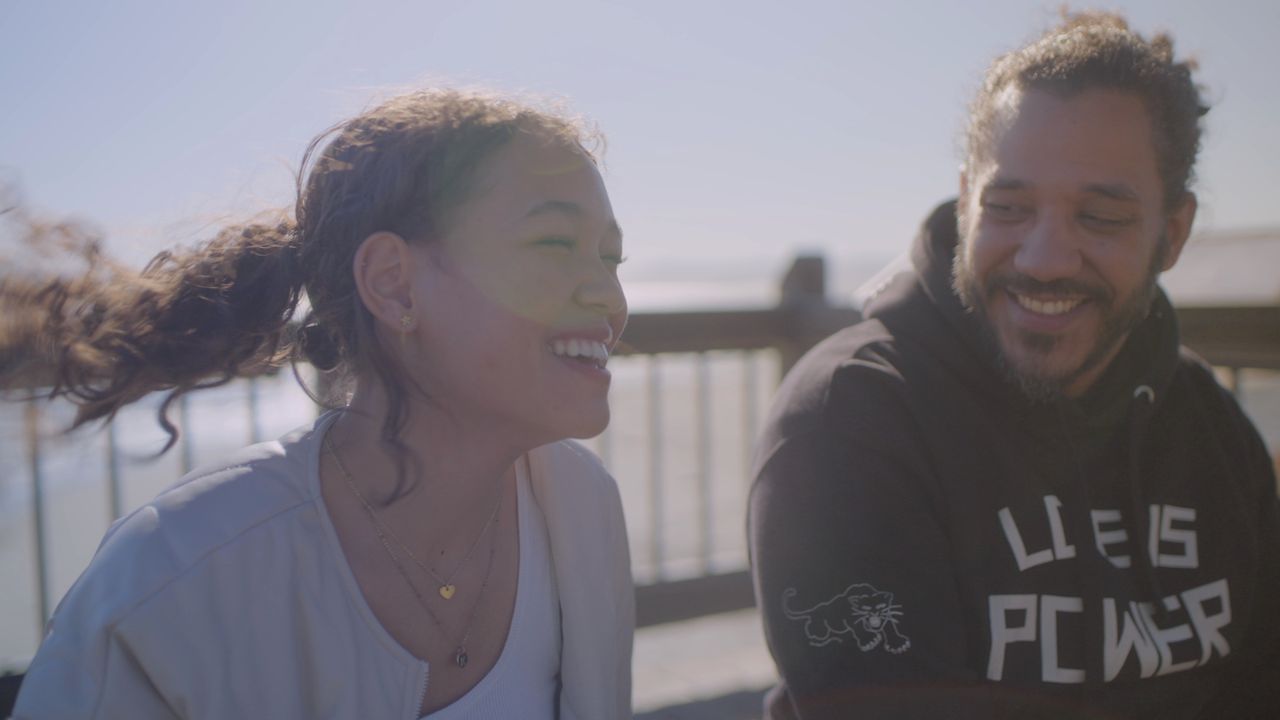
Kaylin, left, with her Uncle Greg, are among the subject of “1000% Me.”HBO
There’s another theme that emerges relatively late, 36 minutes into the hour, when Greg, the adult uncle of Kaylin, says that he deliberately developed his language skills to make sure that he would be heard by people of different races, and he says this was a trauma response. A couple more stores elaborate on the issue of trauma, such as your mother’s childhood realization that she was going to be separated from her white playmate when they were old enough to start school. A lot of American children have experienced a moment where the whole reality of being defined by race came smashing down on them. This is a positive film, but you don’t look away from that.
I think there’s a way where we could edit this where we did not put adults in there, or grownup in there, and you just have a bunch of Bay Area kids talking about how awesome it is to be mixed, which is true to their experience. But we also want to know that eventually they’re going to be preteens and teenagers and adults, and they’re going to run into somethings. Now, hopefully the world will continue to shift in a positive direction and they won’t run into as many things as Greg ran into. And I think Greg makes the point of, “I grew up in Berkeley where I’m told it’s this perfect liberal paradise, yet people are crossing the street to get away from me.” So, it was really important to me for this to be something for the whole family to sit down and watch. I didn’t want it to be a thing where the parents turned it on for the kids and left the room. Even some of the stuff at the beginning, there’s stuff that tips it off … so that you as a watcher know, there might be stuff in here that you have to have a conversation with your kid about. But it’s still family friendly, I believe.
Did you ever fear that just by putting a camera on kids and asking these questions, there was a risk of traumatizing them?
Sure. Yeah. I’ve been doing this sort of interviewing people work for a while now, and, generally, especially with people who show up of good faith and good ethics and you’re inviting them to be there, you want them to feel like they’re being taken care of through the process. But you also know that when it airs, they may be like, “Whoa, I didn’t remember I said that.” You know. More and more through my work, I check in with people after things air. A lot of times they’re not upset about what happened, it’s just weird to see it on TV, because these are not professional TV talkers. A lot of the parents in here got vulnerable and some of the kids got vulnerable about things about their parents that they didn’t like.
Saturday we did a screening for SF Film, afterward I made it a point to walk around and really talk to the adults about, like, “How do you feel about what you said?” Or, “How do you feel about what your kid said? “Because it’s important to me that these people feel like we didn’t waste their time, or we didn’t take advantage of them, or it wasn’t a setup. The interesting thing is that everybody had different levels of response. Everybody was appreciative of the work and excited to share the work. But everybody said, even just us being in the film, or me putting my kid in here, has changed our discussions about racial identity in our house. Even before they saw it. Just by the nature of their kid showing up and having this conversation, or them showing up and having this conversation, they went to the car and started having different types of conversations. So I think they even appreciated the journey maybe more than they appreciate the film.
What do you hope people take away from the project?
I think one thing the film does that people can carry home, it proves that young children can have nuanced discussions about race and racism without being overwhelmed or feeling shamed or feeling sad or feeling like they shouldn’t hear about these awful things. And I think right now as we know, around the country, in many states, there’s talk that kids should not be taught an accurate history of this country. I think our film shows, these kids who are literally, some of them [whose] DNA is made up of the factions of this country that have had the most friction, can still talk about the history of this country and understand that that doesn’t mean they shouldn’t love their grandma.
